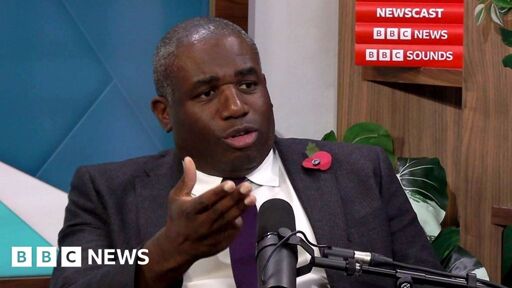The foreign secretary has dismissed his previous criticism of Donald Trump as “old news” and insisted he would be able to find “common ground” with the president-elect.
When he was a backbench MP in 2018, David Lammy described Trump as a “tyrant” and “a woman-hating, neo-Nazi-sympathising sociopath”.
But in his first interview since Trump’s victory, he told the BBC’s Newscast podcast the president-elect was “someone that we can build a relationship with in our national interest”.
Lammy praised his election campaign as “very well run”, adding that: “I felt in my bones that there could be a Trump presidency.”
[…]
In 2019, ahead of Trump’s state visit to the UK, Lammy also posted that the then-president was “deluded, dishonest, xenophobic, narcissistic” and “no friend of Britain”.
Pressed over whether he had changed his mind, Lammy said the remarks were “old news” and you would “struggle to find any politician” who had not said some “pretty ripe things” about Trump in the past.
“In that period, particularly with people on Twitter, lots of things were said about Donald Trump,” he said.
"I think that what you say as a backbencher and what you do wearing the real duty of public office are two different things.



As much as I’d love to munch some popcorn and see Lammy double down on calling Trump out for being a fascist dickhead, that obviously wouldn’t be in the interest of the UK and would probably be an unwise thing for the Foreign Secretary of all ministers to do.
Damaging the prospects of the UK just to get a sick twitter burn in against a pussy-grabbing wannabe despot is not a rational and pragmatic course of action, even if it would be very funny/morally correct.
Unfortunately, Trump did win an election and we do have to put up with him/navigate around him for the next four years.
I do hope, though, that the Republicans becoming more and more unhinged prompts us to be a bit less US-reliant, and to seek partnerships with other countries, and to make our own country a bit more self-reliant.